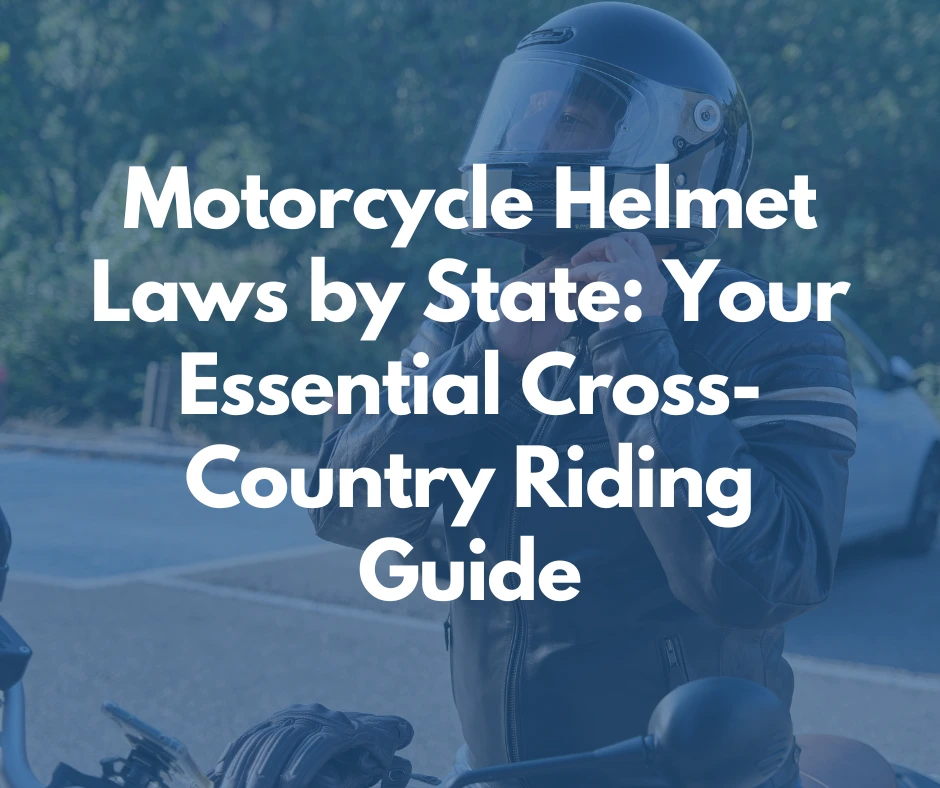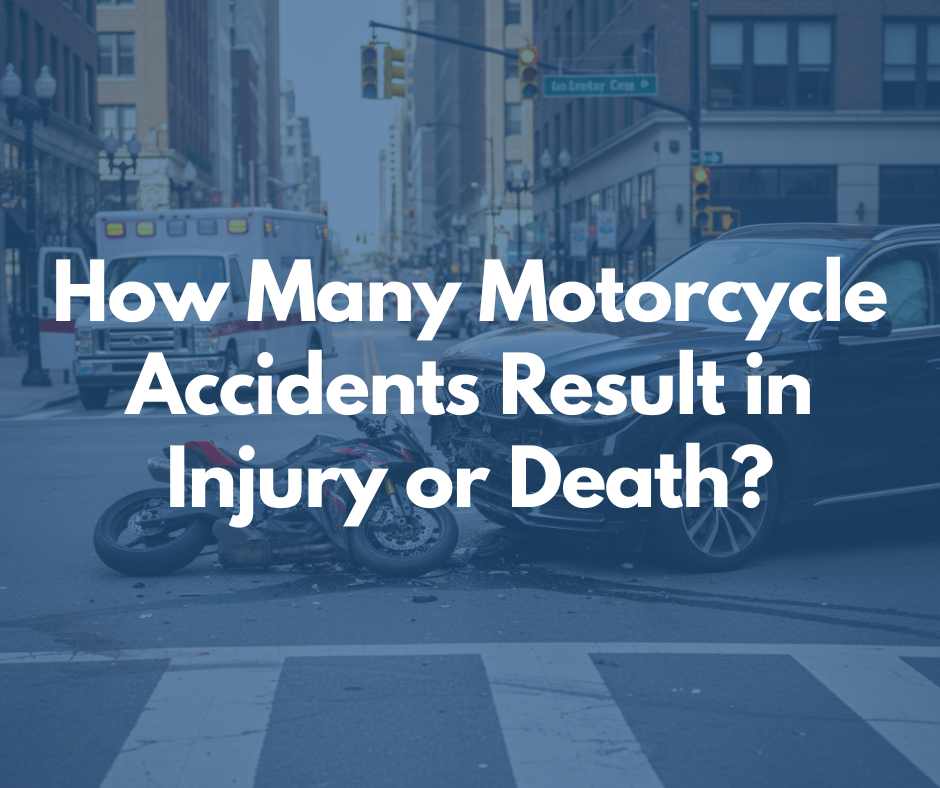
TL;DR: Key Takeaways
- Three types of helmet laws exist across the U.S.: universal laws (all riders must wear helmets), partial laws (age-based requirements, typically under 18 or 21), and no helmet requirements (only Illinois, Iowa, and New Hampshire)
- Universal helmet law states in the West include California, Nevada, Oregon, and Washington, requiring DOT-compliant helmets for all riders and passengers with strict enforcement
- Partial helmet law states include Arizona, Colorado, Idaho, Kansas, Montana, Nebraska, New Mexico, North Dakota, Oklahoma, South Dakota, Texas, Utah, and Wyoming, with varying age thresholds and additional requirements
- Helmet laws change immediately when you cross state lines, making it essential to research every state on your route to avoid citations and legal complications
- DOT certification is mandatory in helmet-required states—novelty helmets do not meet Federal Motor Vehicle Safety Standard (FMVSS) No. 218 and won't provide legal protection
- Helmet law violations can significantly reduce personal injury settlements through comparative negligence arguments, even when you're not at fault for the accident
- Smart cross-country riding requires carrying DOT-approved gear, documenting compliance (safety course certificates or insurance proof), and understanding helmet requirements for your entire route
Planning a motorcycle adventure across state lines? Whether you're heading from Texas Hill Country to the Pacific Coast or making your way to Sturgis, understanding motorcycle helmet laws by state is crucial for both your safety and legal protection.
As motorcycle accident attorneys who have represented riders across multiple states, we've seen firsthand how helmet law confusion can impact both traffic stops and personal injury cases. The rules change dramatically as you cross state lines, and what's perfectly legal in one state could result in a ticket (or worse) in the next.
Understanding the Three Types of Motorcycle Helmet Laws

Since there's no federal motorcycle helmet requirement, each state creates its own regulations. This patchwork of laws falls into three main categories:
Universal Helmet Laws
All riders and passengers must wear helmets regardless of age or experience.
Partial Helmet Laws
Helmet requirements apply only to specific groups, typically riders under 18 or 21 years old.
No Helmet Requirements
Very few states (Illinois, Iowa & New Hampshire) have no helmet laws whatsoever.
Understanding these distinctions becomes essential when planning multi-state rides, as the legal landscape can shift dramatically within a single day's journey.
Western and Central States Motorcycle Helmet Laws
Universal Helmet Law States
California: Strict universal helmet law with aggressive enforcement. All riders and passengers must wear DOT-compliant helmets at all times.
Nevada: Universal helmet requirement for everyone. Helmets must meet DOT standards.
Oregon: Comprehensive universal helmet law with no exceptions for any riders or passengers.
Washington: Universal helmet requirement plus additional safety gear mandates.
Partial Helmet Law States
Arizona: Helmets required for riders under 18. All riders must wear protective eyewear unless the motorcycle has a windshield.
Colorado: Helmet requirement for riders under 18. Eye protection mandatory for all riders.
Idaho: Helmets required for riders under 18. Optional for adults.
Kansas: Helmet requirement applies to riders under 18. Adults may ride without helmets.
Montana: Helmets required for riders under 18. No adult helmet requirement.
Nebraska: As of 2024, riders 21 and older can ride without helmets if they've completed an approved safety course and carry proof. Riders under 21 must wear helmets.
New Mexico: Helmet requirement for riders under 18. Adults may ride without helmets.
North Dakota: Helmets required for riders under 18. Important note: If the rider must wear a helmet, their passenger must also wear one regardless of age.
Oklahoma: Helmet requirement for riders and passengers under 18. Adults 18 and older may ride without helmets.
South Dakota: Helmets required for riders under 18. Eye protection required for all riders unless the motorcycle has a windshield.
Texas: Helmets required for riders under 21. Riders 21 and older may ride without helmets if they've completed a motorcycle safety course or carry proof of qualifying medical insurance. Failure to provide documentation during a traffic stop can result in citations.
Utah: Helmets mandatory for riders under 21. All helmets must be DOT-compliant.
Wyoming: Helmet requirement for riders under 18. Adults may ride without helmets.
Why State Line Crossings Matter More Than You Think
The moment you cross into a new state, you're immediately subject to that state's helmet laws, regardless of your home state's requirements. This instantaneous legal shift creates several important considerations:
Traffic Enforcement
A perfectly legal ride in one state can result in citations just miles later in another.
Insurance Implications
If you're injured in a state requiring helmets and weren't wearing one, insurance companies may argue contributory negligence.
Legal Complications
Helmet law violations can significantly impact personal injury claims and settlement negotiations.
DOT Helmet Standards: What Every Rider Should Know

If you're riding through universal helmet law states or want to maintain maximum legal protection, your helmet must meet Department of Transportation standards under Federal Motor Vehicle Safety Standard (FMVSS) No. 218.
Look for these essential features:
- DOT certification sticker prominently displayed on the helmet's back
- Secure, properly functioning chin strap
- Thick, impact-absorbing inner liner
- Clear manufacturer labeling and compliance information
For detailed helmet safety information, consult the NHTSA helmet safety guide.
Smart Strategies for Multi-State Motorcycle Tours
Carry DOT-Approved Gear
Keep a DOT-compliant helmet accessible even if your home state doesn't require one.
Research Your Route
Check helmet laws for every state on your planned itinerary before departure.
Document Compliance
If your state allows helmet-free riding with safety course completion or insurance coverage, carry proper documentation.
Consider Universal Protection
Many experienced riders choose to wear helmets regardless of legal requirements for safety and legal protection.
How Helmet Laws Impact Personal Injury Cases
Our experience representing motorcycle accident victims across multiple states has shown us how helmet law compliance (or violations) can significantly affect case outcomes. Insurance companies routinely investigate helmet use to minimize settlements, arguing that injuries were worsened by non-compliance with local laws.
Even in cases where the motorcyclist bears no fault for the accident, helmet law violations can be used to reduce compensation through comparative negligence arguments. This makes understanding and following local helmet laws crucial for protecting both your safety and your legal rights.
Frequently Asked Questions About Motorcycle Helmet Laws
Which Western states have the strictest helmet law enforcement?
California, Oregon, Washington, and Nevada enforce universal helmet laws aggressively, requiring DOT-certified helmets for all riders and passengers.
What happens if I'm in an accident without a helmet in a helmet-required state?
You may still recover damages, but insurance companies will likely argue that your injuries were more severe due to helmet law violations, potentially reducing your settlement.
Are novelty helmets acceptable in helmet law states?
No. Novelty helmets don't meet DOT safety standards and won't provide legal protection in helmet-required states.
Can I ride helmet-free across multiple states?
Only if every state on your route permits helmet-free riding for your age group and circumstances.
Professional Legal Support for Motorcycle Accident Cases
At Metier Motorcycle Lawyers, we understand the unique challenges facing motorcycle riders. Our attorneys have extensive experience with motorcycle accident cases across multiple states and understand how varying helmet laws can impact your case.
Whether you're dealing with insurance companies trying to use helmet law technicalities to reduce your settlement or you need guidance from a Seattle motorcycle accident lawyer or a motorcycle accident lawyer in Denver after a serious crash, we're here to help.
Don't let helmet law confusion complicate your case. Contact our experienced motorcycle accident attorneys for a free consultation.
Call us at 833-4-MotoLaw (833-466-8652) or schedule your free consultation today at www.metierlaw.com.
Disclaimer: Past results discussed should not be considered a guarantee of your results as the factors of every case are individually unique. This content is for informational purposes only and does not constitute legal advice. Consult a qualified attorney from Metier Law Firm regarding your individual situation for legal advice.
Tell Us About Your Case – Free Case Review with a Motorcycle Accident Lawyer
Tell Us About Your Case – Free Case Review with a Personal Injury Lawyer
(866) 377-3800Our Locations
.webp)
Do I have a Case?
How Much Should I Be Offered?
Do I Need an Attorney?
If these questions have crossed your mind, let us help. You may need a little direction or may not need an attorney at all, but you deserve to be confident knowing your options. We can provide you with information about our Attorneys of the West® accident investigations and legal services. Your confidential consultation with us is totally free.
Keep up with us!

.svg)




